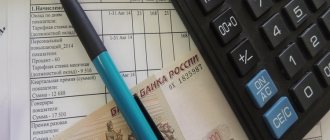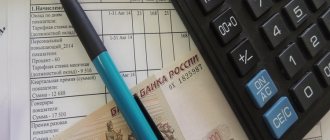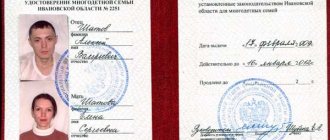Expert consultation
The issue of taxation of simplified taxation system subsidies is relevant today. In some cases, payments are not recognized as part of income under the simplified system. Our expert Alena Fomina examined the features of taxation of different types of subsidies.
***
In the simplified tax system, you generally take the subsidy received into account in your income on the date of receipt. If you have an object “Income minus expenses”, then take into account expenses from payments in the general manner depending on what it was spent on (clause 1 of article 346.15, clauses 1, 2 of article 346.17 of the Tax Code of the Russian Federation).
But there are several types of subsidies that have a special accounting procedure:
- targeted financing (receipts) (subclause 14, clause 1, clause 2, article 251 of the Tax Code of the Russian Federation);
- payments to promote self-employment of the unemployed (clause 1 of Article 346.17 of the Tax Code of the Russian Federation);
- financial support for small and medium-sized businesses (clause 1 of article 346.17 of the Tax Code of the Russian Federation, article 17 of the Law on the development of small and medium-sized businesses);
- financial support for certificates for attracting labor resources (clause 1 of article 346.17 of the Tax Code of the Russian Federation, article 22.2 of the Employment Law).
Differences between a subsidy and a grant
A grant is the provision of funds to perform certain work or provide services. For example
Types of grant:
- Social. Designed for the implementation of social programs.
- Educational. The university thus encourages talented students who get the chance to go abroad to receive additional education.
- Charitable. Often requested by organizers of various shelters.
- Grant for business development. Municipal authorities often provide grants to businessmen for the development of entrepreneurship that plays a socially significant role.
In each situation, an application is filled out, which details the purpose of the funds: construction, purchase of equipment, purchase of medicines or feed, and other details.
After spending, the recipient must submit a report on what expenses were incurred and what results were achieved.
A subsidy, unlike a grant, is direct government support. It does not involve doing any work in return.
Differences between subsidies and compensation
The special feature is the payment period. A subsidy is provided to the recipient to spend on certain needs, and compensation reimburses him for the amount already spent on purchasing something.
For example, agricultural producers may be provided with subsidized funds for the purchase of equipment or machinery: they received funds and purchased a combine harvester. Or part of the interest rate on the loan may be paid as compensation. I purchased a combine harvester on credit, paid off the payment on it and received partial compensation for the payment.
Attention!
Subsidization is more convenient than compensation, since it does not require finding personal or credit money to make a purchase.
Purpose of subsidies
Options and procedures for state subsidies are prescribed in the Budget Code of the Russian Federation.
Main purposes for providing support:
- providing financial assistance to needy categories of citizens;
- providing support to legal entities (for example, tax benefits for small businesses);
- financing of lower budget institutions (for example, joint financing of programs implemented in a certain economic sphere).
Attention!
The purposes of financing may be different, but the payment of subsidies always provides support for individuals, companies or the budget in need of financial assistance.
Targeted funding (receipts)
Do not take into account in income (subclause 14 clause 1, clause 2 of article 251, subclause 1 clause 1.1 of article 346.15 of the Tax Code of the Russian Federation): targeted funding and targeted revenues for you as a non-profit organization for the maintenance and conduct of statutory activities. For the simplified tax system, targeted financing and targeted revenues mean the same income as for income tax (subclause 14, clause 1, clause 2, article 251, subclause 1, clause 1.1, article 346.15 of the Tax Code of the Russian Federation).
In order not to take into account targeted financing (receipts) in income, it is necessary (subclause 14, clause 1, paragraph 2 of Article 251 of the Tax Code of the Russian Federation) to use the funds received for their intended purpose and keep separate records of income and expenses within the framework of targeted financing (receipts).
If you did not keep separate records, then include financing (receipts) in income on the date of its receipt (subclause 14, clause 1, clause 2, article 251, clause 1, article 346.17 of the Tax Code of the Russian Federation). If you did not use the funds for their intended purpose, then, in our opinion, they should be included in income on the date when the misuse occurred, and not on the date of receipt. As of the date of receipt, there is no reason to consider them taxable income, because at that time there was no misuse (subclause 2, clause 1, article 248, clause 14, article 250, clause 1, article 346.15 of the Tax Code of the Russian Federation).
But if the money was received from the budget and used for other purposes, then it is not included in income. They will be collected from you according to the rules of the Budget Code (clause 14 of article 250 of the Tax Code of the Russian Federation, clause 3 of article 306.4 of the Budget Code of the Russian Federation).
Do not take into account expenses due to targeted funding (revenues) for the simplified tax system if you did not take this funding (receipts) into account in your income (Letter of the Ministry of Finance of Russia dated June 28, 2019 No. 03-11-06/2/47815). If you accounted for financing (receipts) in income, then you can account for expenses from it on the simplified tax system with the object “Income minus expenses” in the general manner. In this case, expenses must comply with the requirements of Art. 346.16 Tax Code of the Russian Federation.
Main features of a subsidy
There are three distinctive features of a subsidy:
- Gratuitous. There is no requirement to return the payment (with the exception of cases of non-spending in accordance with the intended purpose - most situations arise with federal funds allocated for the regional budget or with regional funds for the municipal one).
- Special purpose. The benefit may be spent only on those needs for which it is provided. For example, it is impossible to take money for business development and spend it on a banquet.
- Co-financing. The subsidy is an “add-on” to personal investing. For example, compensation for housing and communal services is an additional payment to the approved 10–21% (depending on the subject of the Russian Federation) of family income, paid by the recipient out of his own pocket. A car loan subsidy is an addition to the down payment made by the recipient of the loan.
That is, the main features of subsidization are that:
- the payment is provided for a specific purpose;
- money is issued free of charge (subsidized payments do not require repayment of funds or interest in connection with their use). Exceptional cases include spending such payments on needs not provided for by the request;
- the subsidy acts as co-financing, that is, it does not completely cover a specific financial need, but is only additional assistance;
- subsidies can be carried out not only at the expense of state budget funds, but also at the expense of regional budget money.
Exemption from certain categories of payments
Some pensioners may be exempt from paying a number of payments. Most often these include payments for garbage removal or major repairs.
If the pensioner is not the owner of the property, but is simply registered in the apartment
, then he is exempt from paying contributions for major repairs and maintenance of common property (though, like any other person who does not formally own an apartment).
Compensation for contributions for major repairs is also provided to elderly pensioners. At age 70
Each apartment owner has the right to apply for compensation (refund of payment) in the amount of 50% to pay the contribution for major repairs.
If the pensioner is 80 or more years old
, and he lives in the apartment alone or with a disabled person of group I or II, then he is provided with compensation for paid capital repair fees in the amount of 100%.
Who can count on subsidies
In accordance with the legislation of the Russian Federation, the following categories can apply for state subsidies:
- low-income citizens who receive money to support their livelihoods from the budget: the federal social service, the region of residence and the municipal government;
- citizens affected by natural disasters;
- citizens who need improved housing conditions;
- citizens who do not have an official job, are registered at the labor exchange or are engaged in entrepreneurial activities (beginning businessmen);
- citizens who have a badge of honor or are members of a special program.
Attention!
Subsidies are also provided to legal entities and for business development.
Which pensioners are entitled to subsidies for housing and communal services?
At the federal level, the following benefits are provided for pension recipients:
- a fifty percent discount on utilities and rent for WWII participants and citizens who are equal to them;
- fifty percent discount on utilities and one hundred percent discount on rent for Heroes of Socialist Labor;
- 100% discount for labor veterans.
At the regional level, other benefits may be provided for pensioners. Thus, Russians classified as low-income can receive a subsidy. In addition, elderly people with disabilities are given a fifty percent discount on utilities.
Subsidies for business expansion
In most cases, subsidies are paid to small or medium-sized businesses.
By providing such subsidies, the state budget:
- Covers a share of a businessman’s costs, for example, for lending. Thanks to this, the entrepreneur can allocate personal sources for the development of activities. In this way, the budget also receives certain advantages in the form of receiving tax contributions from business. This is in theory, since in reality this phenomenon does not always occur.
- Supports socially significant entrepreneurship, whose profits are only enough to cover expenses. For example, some regional authorities provide subsidies to entrepreneurs developing the agricultural industry.
- Funds startups - opening a new business. Most often, these payments involve a competition (to receive funds, you need to prove to representatives of government agencies the importance of your business project in comparison with other business models of competitors).
Payments to promote self-employment of the unemployed
Such payments must be included in income gradually in amounts equal to the expenses on which you spend these payments. Such gradual tax accounting is valid for three calendar years, starting from the year of receipt (clause 1 of Article 346.17, clause 1 of Article 346.19 of the Tax Code of the Russian Federation).
If at the end of the third year you have an unspent portion of cash payments, you will have to recognize them as income without waiting for you to spend it. For example, if you received a subsidy of 300,000 rubles, after three years the expenses due to it amounted to 250,000 rubles, then the unspent balance of the subsidy of 50,000 rubles will become taxable income.
Subsidizing for individuals
In Russia, subsidizing citizens plays an important role. State authorities purposefully or with the help of various budgetary and extra-budgetary funds provide subsidized funds to certain categories of individuals:
- Low-income citizens. This procedure is carried out by the social protection service and also involves a declarative nature. To receive a subsidy for a specific need, you must contact social security institutions and submit a written application.
- Citizens who have a congenital or acquired disability, and persons (most often close relatives) who care for a disabled person.
- For people who have retired. Subsidized payments for: travel in city and intercity transport, for health improvement in sanatoriums and other expenses.
- Persons who do not have official employment, are registered at the labor exchange or have organized entrepreneurial activities (new businessmen).
- Citizens who have distinguished services to the country. This category includes: veterans of WWII or current military operations.
- People who need improved living conditions.
- Large families and young married couples.
- Citizens who have suffered any damage as a result of natural or man-made disasters.
To consider an application for a subsidy payment and make a definite decision regarding the application, you must include with the application a document confirming the citizen’s right to apply for a cash payment.
Attention!
As a supporting document, a certificate confirming that a person has a disability group or a birth certificate of children can be provided when applying for payment for a mother of many children.
Subsidizing regional and municipal budgets
The budget system of the Russian Federation is a vertical system. The bulk of tax contributions received locally are transferred to the federal budget, then sent back in the form of subsidized payments and various subsidies in order to fulfill certain obligations.
The subsidy is intended to jointly finance the costs of local budgetary institutions. For example, a constituent entity of the Russian Federation provides funds to the municipal budget to pay teachers’ salaries. Such financial support is provided to areas that lack local tax funds.
Will there be changes to subsidies in 2020?
The media regularly contains reports from government agencies about the need to develop the preferential system of the Russian Federation. Not long ago, there was a discussion on the issue of identifying several subjects of Russia that are in particular need of subsidies.
It can be assumed that government support is now becoming targeted. For example, in regions with a low standard of living for citizens, a rent subsidy will be introduced, funds for which will be provided from the state budget. It is not yet entirely clear on what basis the targeting of subsidies to constituent entities of the Russian Federation will be considered.
The Ministry of Labor also announced that it would reduce state support for Afghanistan veterans. The amount of subsidies for them will be reduced by 2 times.
No other changes are planned for 2021. Pensioners will receive benefits in the same amount, and the conditions for assigning preferences will not change. Social support from the state is a factor that directly affects the standard of living of Russian citizens.
Forms of payment
The following forms of subsidies are distinguished:
- Direct. Funds are paid in cash or non-cash to the recipient, after which he independently purchases products or pays for services.
- Indirect. Money is paid directly from budget sources: to repay the interest on the loan, to a medical institution to cover medical expenses and other costs. The recipient of payments is requested to provide documentation confirming the actual event.
- Cross. Compensating the expenses of one industry with the profits received from another. For example, some constituent entities of the Russian Federation include in the tariff for electricity services for legal entities compensation for losses resulting from curbing electricity prices for individuals. This situation reflects the subsidization of individuals at the expense of legal entities as cross-financing.
Attention!
Material assistance is provided either in cash (cash or non-cash), or as interbudgetary transfers, in cases where a higher budget subsidizes a lower one.
What income is excluded from the calculation?
The following receipts are excluded from the calculation:
- presidential benefits for children from 3 to 7 years old, including those accrued for previous periods;
- coronavirus payments for children. This is 10,000 rubles - one-time for a child from 3 to 16 years old. And 5,000 rubles monthly for April-June 2020 for children under 3 years old;
- material assistance of a one-time nature in connection with a natural disaster or other emergency circumstances or in connection with a terrorist act;
- If the family pays alimony, its amount is deducted from the total income.
Main types of current state support in the form of subsidies
For the social security of citizens, the legislation of the Russian Federation has developed three types of subsidies:
- For the acquisition or construction of real estate.
- To pay for housing and communal services and housing.
- Payments to officially unemployed citizens engaged in business development.
Additionally, there are subtypes of subsidized support:
- persons with a disability group;
- large married couples;
- low-income categories of citizens;
- covering medical expenses in the form of purchasing medications and paying for expensive treatment.
Types of payments
Subsidized funds are usually divided according to their basic properties.
Co-financing of housing and communal services
The budget transfers to the recipient an amount intended for partial repayment of payments for the use of housing and communal services. Any family whose utility payments are greater than the maximum share of family income in the region can apply for subsidies. For example, the maximum limit established for Moscow is 10% of total family income. The spouses' joint earnings are 60 thousand rubles, and payments for housing and communal services amount to 7 thousand rubles. They pay 10% of their own income (6 thousand rubles) themselves, and 1 thousand rubles. co-financed by the city budget.
Housing subsidies
Certain categories of individuals may apply for assistance in purchasing real estate:
- Residents of dilapidated or dilapidated housing. Subsidizing the purchase of new real estate is carried out in cases where the municipality cannot construct the building on its own. The state benefits because funds are provided solely according to the price of living space (there is no need for additional costs for infrastructure development required when constructing a new building).
- Pupils of children's institutions . Orphans who do not have personal living space.
- Citizens engaged in military service. Subsidizing military personnel is carried out through a military mortgage program - the state pays monthly payments of a set amount instead of the borrower.
- Large low-income couples. Support for this category of individuals is not provided in all regions of the country. First, citizens need to convince the authorities of the need for their own real estate and prove that there is no possibility of improving their living conditions.
- Young married couples (at least one of the spouses must be under 35 years of age). To participate in the federal program “Providing Housing for Young Families” you must: have a need to improve housing conditions and at the same time be solvent, because the subsidized amount is significantly less than the cost of the apartment. You should also be prepared for a long queue, depending on the subject of the Russian Federation. The payment can be used as a down payment or to pay off an existing loan.
- Participants of the Second World War. In 2005, a project was launched under which all veterans were to be provided with new living quarters, but in 2021 there are citizens who participated in the Second World War waiting in line to subsidize the purchase of real estate.
- Budget employees. Each subject of the Russian Federation has certain projects designed to provide housing to state employees. In some cases, assistance is provided in the form of a subsidy to partially cover the mortgage interest rate, in others - in the form of lifting resources. Most often, payment is permitted in areas where there is a shortage of specialists in a narrow field. For example, government authorities provide assistance in purchasing real estate to teachers and medical workers who come to work in the Far East, in villages and other unclaimed areas.
- People living in the Far North. Those leaving the territory after completing their work experience.
Child subsidies
To maintain a positive demographic situation in the Russian Federation, there are a number of subsidized payments for married couples with children:
- Maternity capital for a second child. A certificate that spouses can spend on improving their living conditions, for the future education of the child and for other needs. Maternity capital is transferred directly from the budgetary institution to the supplier of the goods. Some regions provide a separate subsidy for the third child.
- Housing subsidies. They are discussed earlier.
- Payments to low-income couples. A monthly subsidy is provided for a child born after 01/01/2018. It is the cost of living for children in accordance with their region of residence.
Attention!
The state authorities provide a subsidy for the first child, and in the form of maternity capital for the second.
Subsidizing for business startup and development
An officially unemployed citizen - a person registered with the labor exchange - is allowed to apply for this subsidy. The payment amount in 2021 is 59 thousand rubles. You can receive money after protecting your own business plan on the exchange. There is no excessive demand for the presentation, but the matter must involve at least a minimal perspective and be realistic. If the business model involves the employment of hired employees, it is possible to request an additional 59 thousand rubles for each of them. - to organize the workplace.
Important!
The business must operate for at least 12 months, otherwise the entrepreneur is obliged to return the funds provided.
Businessmen who have worked for more than 12 months can qualify for subsidies of up to 300 thousand rubles. in order to expand business activities. In this case, a business plan is drawn up and presented, in which subsidized funds are equal to a maximum of 50% of the total costs of business development. The government subsidy can be used to pay for the rental of premises, the purchase of tools and other expenses.
Attention!
Subsidizing to cover interest payments on a leasing loan is provided at the regional level and is not available everywhere. For example, in Moscow, it is allowed to receive up to 5 million rubles to cover leasing payments (when purchasing equipment or a vehicle for production activities).
Subsidizing for disabled people
The amount of payment to persons with disabilities is determined in accordance with the established group. In 2021, there is a one-time financial payment. When a disabled person receives income less than the official subsistence level for a pensioner, he is paid federal social security until he reaches the required level.
Subsidizing car loans
The state adds 10% (depending on the region of the Russian Federation) of the price of transport to the down payment on a car loan. The offer is valid for cars up to 1 million rubles.
Subsidies for man-made and natural disasters
Citizens who suffered from fires, explosions at factories and similar disasters are provided with regional funding in the amount of 10 thousand rubles. (maximum 50 thousand rubles per married couple), and federal - 10 thousand rubles.
Attention!
People who have become hostages and come out of trouble with their health intact are provided with assistance in the amount of 100 thousand rubles.
How to count
To determine whether a family is low-income, it is necessary to calculate the average per capita income. The procedure for its calculation is established by Federal Law No. 44-FZ dated 04/05/2003. The answer to the question of what income a low-income family should have per person in 2021 is less than the subsistence level established in the region of residence.
There are exceptions to this rule. For example, to receive “Putin’s” payments established by Federal Law No. 418-FZ of December 28, 2017, you need earnings not exceeding 2 times the subsistence minimum.
The formula for calculating whether a family is low-income in 2021 looks like this:
In accordance with Art. 4 44-FZ, average income is calculated for a period of three months, the variable Km in such cases is equal to 3, and the calculation takes into account income for the last three months. In some cases, the calculation period is recognized as a year.
The unified portal of public services provides a special service for calculating per capita family income. Check whether government benefits, subsidies and compensation are eligible.
Use free instructions from ConsultantPlus experts to apply for any benefit:
- on unemployment;
- for pregnancy;
- children's and others.
Who can apply for subsidies
Both individuals and legal entities can receive subsidies in Russia.
Individuals
According to Russian legislation, the list of citizens to receive subsidies includes:
- low-income and large married couples;
- citizens who need improved living conditions;
- unemployed;
- disabled people, as well as representatives of other social categories;
- affected by external factors.
Legal entities
Eligibility for subsidized payments can be defended by:
- state and municipal enterprises;
- commercial companies for the purpose of partial reimbursement of expenses or lost income in accordance with certain areas of activity;
- non-profit companies for the implementation of social programs.
Separate subsidies are transfers from higher budgets in favor of lower ones. Such payments are provided for various needs, for example, for the construction of kindergartens and schools or road repair work.
Sequence when making payments
The procedure for obtaining subsidies is as follows:
- A specially formed commission determines the degree of need of the citizen and his family as a whole.
- The applicant brings the documentation necessary to process the payment.
- The application is reviewed and the documentation provided is analyzed.
- The applicant is notified of a positive or negative verdict.
You can submit an application for a subsidy in the following ways:
- personally to the responsible authorities;
- through the MFC;
- using your personal account “Gosuslugi”.
How to apply for a subsidy
The order in which the payment is processed depends on who it is intended for.
Registration of subsidies for individuals
The procedure includes the following steps:
- The applicant applies to the MFC or Social Insurance Fund with an application for a subsidy. The document can also be sent using the State Services portal.
- A package of documentation is attached to the application. The list can be clarified on the department’s website.
- The commission determines the degree of need of the applicant for support and checks whether all required documents have been submitted. The review period is maximum 10 days.
- The applicant is given a written response about the assignment of a subsidy or about a reasoned refusal.
- If the decision is positive, the subsidy funds are transferred to the bank account specified by the applicant. Subsidies are not currently issued in cash.
When submitting an application through Gosuslugi, scans are required:
- passports of each family member;
- documents confirming the absence of debt (for utility bills, taxes, etc.);
- a document from the management company or HOA about the number of residents and the area of the premises;
- documents confirming family income for 6 months;
- Bank account details for transferring money.
When applying in person you will need:
- documents confirming family ties of applicants living together (passports, birth, adoption, marriage certificates);
- documents for real estate (extract from the Unified State Register or social lease agreement, lease);
- documents giving the right to subsidies (pension certificate, document on receipt of disability, etc.);
- a document from the passport officer of the management company or HOA about the number of residents and the area of the premises;
- documents confirming the absence of arrears in taxes and payments for housing and communal services;
- information about the income of family members;
- When applying for a housing subsidy, confirmation of the availability of own funds necessary to supplement the subsidy when purchasing a home is required.
Registration of subsidies for legal entities
Subsidies to legal entities are provided in accordance with regulations adopted by state and municipal authorities. These regulations are posted on the official websites of municipalities.
Sequence of payments:
- The government body publishes information in the media or on its website about the possibility for legal entities to receive a subsidy, the deadlines and the necessary requirements.
- The applicant collects a package of documents and submits them to the government agency.
- The application is reviewed within 30 days.
- The applicant is given a response with approval or refusal.
- If the decision is positive, the money is transferred in accordance with the regulations to the recipient’s account.
- At the end of the calendar year, the recipient of the subsidy reports on the expenditure of funds.
Subsidies from the Ministry of Agriculture
From 2021, new subsidies are being introduced to support agriculture. All subsidies from the Ministry of Agriculture are aimed at developing enterprises and creating a production base. A new type of government support is the Beginning Farmer project. This program is aimed at supporting new agricultural producers.
Entrepreneurs direct the received grant to:
- purchase of agricultural land;
- purchasing fertilizers, seeds or pesticides;
- development of documents for the reconstruction (construction) of production base facilities;
- purchase of seedlings, seeds, fertilizers;
- purchase, registration, repair of production facilities;
- connecting objects to utility networks;
- purchase of agricultural machinery, animals, freight transport, inventory, equipment.
The Beginning Farmer program will be available to businessmen who have been working in the agricultural sector for at least 2 years. The largest grant amount is 1.5 million rubles. Russians aged 19-58 years old participate in the program. The applicant must have a higher or secondary agricultural education (special courses). A beginning farmer must have at least 100,000 rubles to implement a business plan.
Another program of the Ministry is subsidizing peasant farms. This program is available to all beginning farmers. The size of the subsidy depends on the region of registration of the peasant farm. The amount of subsidies is influenced by the following factors:
- favorable climatic conditions;
- damage from sanctions;
- development of agricultural facilities in a particular region.
Help from the state is up to 300 thousand rubles. Money can be spent on:
- conducting communications;
- acquisition of equipment and machinery;
- purchase or reconstruction of residential premises.
To receive assistance, a farmer must draw up a business plan and register the form of ownership of the enterprise. One of the conditions is the indication of target costs.
The Ministry offers the Family Livestock Farm program. The project was created to support family businesses and agricultural development. Farmers will be able to spend the allocated money on:
- purchase of poultry, fish, farm animals;
- modernization or reconstruction of production facilities;
- development of project documentation;
- provision of facilities with machinery and equipment;
- purchase of autonomous sources of water, gas, and electricity supplies.
To receive this grant, agricultural enterprises must operate for at least 12 months. An additional condition is the presence of the status of an agricultural producer. The family farm must have its own money in the amount of 40% of the total project amount.
It is planned to increase wages in the agricultural sector, expand the raw material base, and develop unused land.
One of the main goals of government support programs is to increase the percentage of domestically produced goods.
Grounds for termination of subsidy payment
Cancellation of subsidies can occur for several reasons:
- An increase in family income or a decrease in the share of utility bills below the acceptable level.
- Changes in family composition. If the child has grown up and family income per family member has increased, which has led to no need to receive payments.
- Change of place of residence. In accordance with the new place of residence, it is necessary to re-send documentation to assign payments.
- Detecting false information. For example, it turned out that a non-working citizen actually works on the basis of a GPC agreement. In such a situation, the subsidy is returned.
- Debt for housing and communal services for more than two months automatically blocks the payment of the subsidy, and for more than 3 months it stops.
Subsidies from social protection authorities
Another project developed by the Ministry of Labor determines in what cases a social security subsidy is assigned to self-employed citizens, and whether there are grounds for its provision in a particular situation. Contracts concluded with persons with income below the subsistence level are concluded for a period of up to one year, and allow them to receive regular payments with a limit of up to 250 thousand rubles. However, this does not mean that each applicant is guaranteed to receive the announced amount - the final amount is determined by the decision of the authorized body at the place of residence or stay, and is calculated on the basis of the submitted business plan. It is not difficult to get advice and assistance in obtaining an electronic digital signature, as well as familiarize yourself with the registration procedure in the Unified Public Procurement System - just contact one of the Information Support Centers.
Take advantage of the system of convenient banking services from SEA BANK - the system of remote access to accounts allows you to carry out various operations using a computer and Internet access.
Responsibility of subsidy recipients
The recipient of public money has several responsibilities:
- The applicant bears full responsibility for the accuracy of the submitted documents. If it is discovered that a document is counterfeit or invalid, financial, administrative, and sometimes criminal liability arises.
- The recipient of the subsidy is obliged to notify the subsidy payer within a month about changes in significant circumstances - the level of income of the applicant’s family, family composition, place of residence, place of registration.
Pitfalls of subsidies
Despite the fact that the money is transferred to the recipient of the subsidies free of charge, state support also has negative sides.
Difficulties in collecting documents
This procedure is gradually being simplified, since now the bulk of payments have become available to receive through the MFC. But collecting documents still takes time. Not all management companies are happy to see you; it is not always possible to obtain income certificates quickly and without problems.
Spending restrictions
Relevant when paying housing subsidies and subsidizing legal entities. For example, in most cases, using these payments you can only buy new real estate. This was introduced to eliminate abuse, but greatly limits the choice. Subsidies for legal entities are often intended to cover a portion of the interest rate on loans. That is, you will have to purchase fixed assets, raw materials or materials from third-party sources, which creates additional costs.










